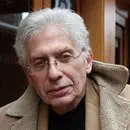
As many times as I have read the Book of Ecclesiastes (Kohelet), mostly now do I appreciate the gravity of its message…” A generation goes and a generation comes.”
King Solomon speaks directly to those of us who find our days slipping past, we, the generation that goes.
The clock keeps ticking, the calendar keeps turning, another Passover is coming, and we keep wondering.
Two weeks ago, Bonnie Kaye, left us. She was a dear friend of mine, and a tireless warrior for Israel, and perhaps that is what brings on this gloom…or inspiration.
Is there anybody left?
Are all the good people going or gone?
Who will be there to pick up where we left off? Will there be anyone to remember that we were here and did something?
Or are we doomed to be forgotten without a trace.
When the accusers come, who will rise in our defense? We won’t be around to speak for ourselves.
Have we made more enemies than friends? When sleep won’t come, we remember few smiles, but many snubs.
It’s unwise to review the past, and yet we do so to our peril and despair.
More often than not, we have failed.
Is anybody listening? If so, do they take it the wrong way?
We yield to our most horrible nightmares…while still awake.
We are haunted by the mistakes we made and we are troubled three o’clock in the morning of the friends, loved ones and even acquaintances who misunderstood us.
If only there were some way to make amends, but most of them are gone.
What’s there to cheer when the past is so much longer than the future.
From the bricklayer to the barber to the writer, did we do anything of worth? In the end, the writer’s words splash and wash away like raindrops.
In your prose, you took a stand. You against the world. That’s a laugh. The world always wins.
“All is futility,” says King Solomon…the very theme of the work. He took criticism for this. There was a move to suppress the book. Some among the Sages were worried that it would be misunderstood, especially so by ignoramuses. But finally, it was deemed a holy of holies, for it begins and ends with words of Torah, and overall, declared the Rabbis, those who WISH to misunderstand it, let them.
For it speaks truth. Harsh as it is.
Worst of all, is to be forgotten.
That’s why we write, if only for our children and grandchildren, and maybe a few others out there in the dark.
We will never match Kohelet. Readings of it are featured in the Synagogue on Succoth. The book is a lofty part of the Biblical Canon, and the Western Canon.
Fortunately, writing is not a competitive sport. For the rest of us, the duty is to aspire, and to do it our way, and let the chips fall where they may.
Telling it like it is, we draw inspiration from King Solomon to write our own harsh realities, as in this passage from a work on a life or death moral dilemma.
Down and out…not in heavenly Jerusalem, but in worldly Manhattan.
“There you were, with the rest of the unemployed in line, and you were always waiting in the wrong line.
“You had the wrong papers, as did your parents fleeing the Holocaust. You had to go back and start all over again. The clerks disdained you.
“You were livestock to be branded.
“You knew days when there was no food. You knew what it was like to hear the landlord knocking on the door.
“You knew the fear of poverty. Everyone was your boss and could order you around.
“You complied. You ran the errands. You behaved. You drove the cabs. You opened the doors for the rich and then hungered for the tip.
“You waited tables and learned that the cook in the kitchen was your master and king. You fed him his bribes if you knew what was good for you.
“You pumped gas and people called you boy.
“You did the telephone soliciting but could get no leads. You mowed the lawns and worked fast in the heat to meet the boss’ daily quota.
“You made deliveries in the garment district, and learned what it was to get fired. There was no problem with your work, but the man had a nephew.”
That too is not pessimism. It is life.
The wheel of destiny spins and makes its rounds for every life, whether you play or don’t play. You are in.
Life is a gamble, as we keep saying, and those were the words of a gambler, who knows that man’s assignment is to complete the task.
But luck is everything.
A roll of the dice decides success or failure. Wealth, says King Solomon, is in the hands of the Almighty. Only He decides.
So that too is a toss-up.
In the end, the House always wins.
Mindful of this throughout is King Solomon.
“This too shall pass.” Solomon’s words to the wise according to my father, when he gave me the book as a gift for my Bar Mitzvah.
(If this is new to you under the sun, start with this from Chabad. Then buy the book, and study it with someone who is truly learned.)
We were gifted with life. How much of it did we squander? The days slipped by too fast. We were given one chance.
We begin with dreams, with hopes to achieve, and with promises to succeed, only to realize that nobody cares, or that some people only care to be cruel.
Bonnie Kaye was vexed to tears by this.
Wisdom comes with age? So does regret.
Our prime…our best years…are they ahead or behind? God only knows.
But to our Creator, who assigned for us the Works to be done, to our credit, we say, “Here I am.”
So, we plough on, remembering what the Rebbe said: “To despair is to sin.”
Says King Solomon, with this chilling message, “So remember your Creator in the days of your youth, before the evil days come.”
But he ended his Book of Kohelet on this profound note:
“The end of the matter, when all is considered, fear God and keep His commandments, for that is man’s whole duty.”
New York-based bestselling American novelist Jack Engelhard writes regularly for Arutz Sheva.
Engelhard’s books include the worldwide book-to-movie bestseller “Indecent Proposal.” Slated next for the movies is his novel “Compulsive,” about Gil Gilels, a documentarian by day, a gambler by night. He is pro-Israel, but to pay off his massive gambling debts, he may be compelled to make an antisemitic film. His life is on the line to do this. Does he have a way out? Contemporaries have hailed Engelhard as “The last Hemingway. A writer without peer, and the conscience of us all.” Contact here: viewopinion@aol.com

